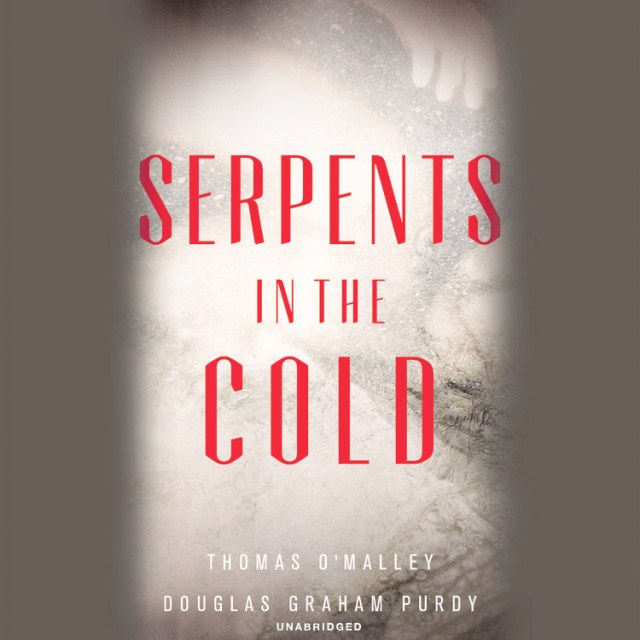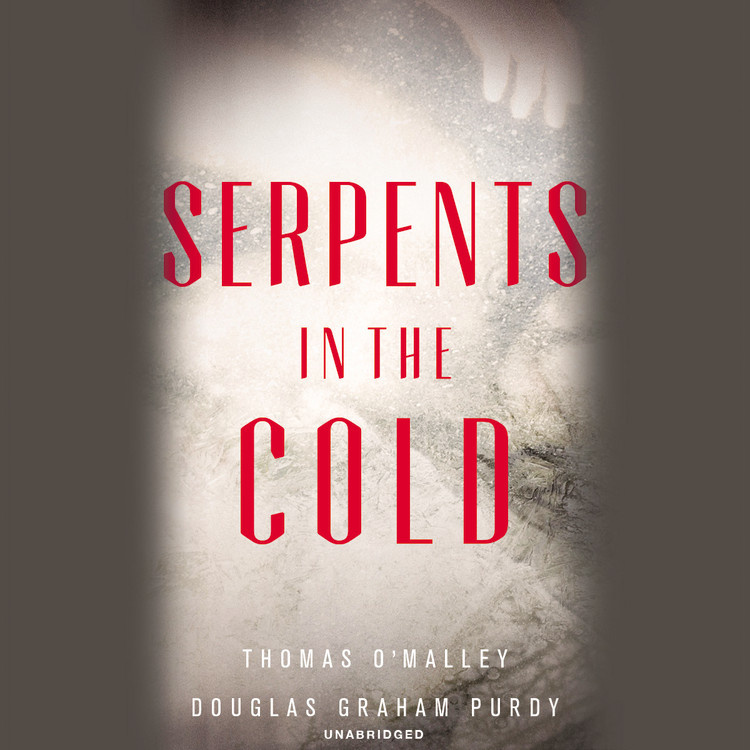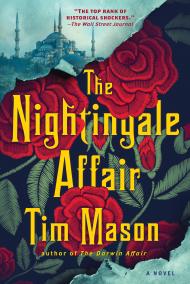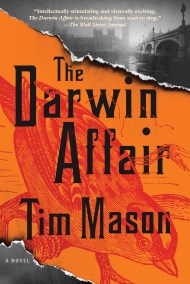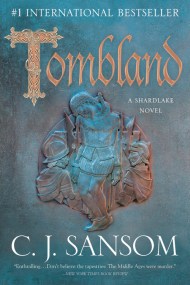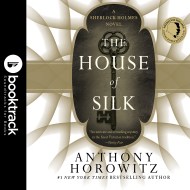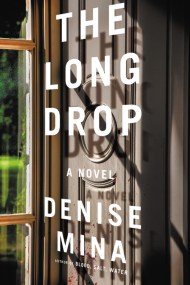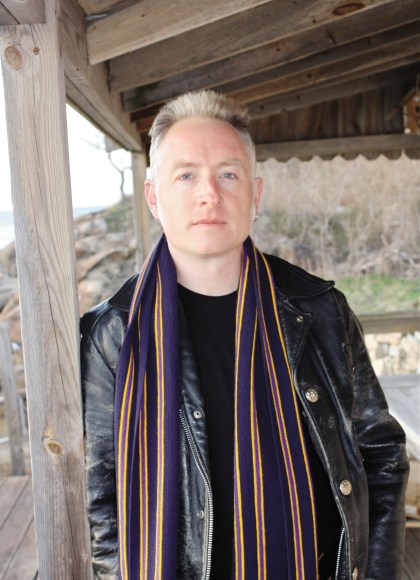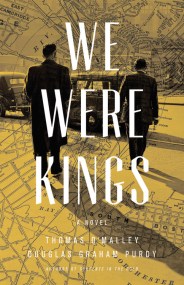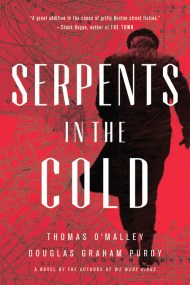Serpents in the Cold
Contributors
Read by Jim Frangione
Formats and Prices
Format
Format:
- Audiobook Download (Unabridged)
- ebook $9.99 $12.99 CAD
- Trade Paperback $24.99 $31.99 CAD
This item is a preorder. Your payment method will be charged immediately, and the product is expected to ship on or around January 20, 2015. This date is subject to change due to shipping delays beyond our control.
Also available from:
A serial killer stalks the streets of 1950s Boston — and two friends take it upon themselves to bring him down.
Post-war Boston is down on its luck and looking for change. A year after the Great Brink’s Robbery — the largest robbery in the history of the United States — Boston is known more for its seedy underbelly than for its rich, historical past. The winter of 1951 is the worst in recent memory, and the Bruins are suffering another losing season.
Like Boston itself, lifelong residents Cal O’Brien and Dante Cooper are struggling to find their identities after World War II. Cal has built a mildly promising life for himself as an employee of a company providing private security, whether to an honorable businessman who needs a night watchman or to an Irish mafioso who needs to have someone’s legs broken. Dante is everything Cal is not. A heroin addict trying and failing to stay clean, Dante feels the call to do good after he discovers that his sister-in-law was the latest victim of a serial killer targeting disadvantaged women.
Woefully unqualified, but determined to help, Cal and Dante take it upon themselves to track the killer — but their daunting quest takes on dangerous consequences when the trail leads them to the highest ranks of city government. There are a few well-placed men who don’t want Cal and Dante to solve this case.
An absorbing mixture of history and suspense, told with a meticulous eye for detail and character, Serpents in the Cold is a moving exploration about two men battling for second chances.
Post-war Boston is down on its luck and looking for change. A year after the Great Brink’s Robbery — the largest robbery in the history of the United States — Boston is known more for its seedy underbelly than for its rich, historical past. The winter of 1951 is the worst in recent memory, and the Bruins are suffering another losing season.
Like Boston itself, lifelong residents Cal O’Brien and Dante Cooper are struggling to find their identities after World War II. Cal has built a mildly promising life for himself as an employee of a company providing private security, whether to an honorable businessman who needs a night watchman or to an Irish mafioso who needs to have someone’s legs broken. Dante is everything Cal is not. A heroin addict trying and failing to stay clean, Dante feels the call to do good after he discovers that his sister-in-law was the latest victim of a serial killer targeting disadvantaged women.
Woefully unqualified, but determined to help, Cal and Dante take it upon themselves to track the killer — but their daunting quest takes on dangerous consequences when the trail leads them to the highest ranks of city government. There are a few well-placed men who don’t want Cal and Dante to solve this case.
An absorbing mixture of history and suspense, told with a meticulous eye for detail and character, Serpents in the Cold is a moving exploration about two men battling for second chances.
Series:
-
"Like Sara Gran's Dope, Serpents in the Cold lovingly revisits the hardboiled noir. From the dives of Dorchester to the Locke-Ober Café, John Garfield and Richard Widmark would feel right at home in O'Malley and Purdy's bygone, fallen Boston."Stewart O'Nan, author of West of Sunset
-
"Serpents in the Cold is a great addition to the canon of gritty Boston street fiction, a no-punches-pulled look at a bygone era. Noir is how we like our crime, and "no-'R'" is how we pronounce it."Chuck Hogan, author of The Town
-
"Melancholy as a lonesome train whistle, beautifully written, as well as thrilling, Serpents In The Cold is a tight little gem of characterization and suspense. You need this."Joe Lansdale, author of The Thicket
-
"SerpentsintheCold is a startling work of art, a beautifully rendered, atmospheric tale of crime and punishment set in mid-twentieth century Boston. The crimes perpetrated are as much of the heart and soul as of the system and the worst punishments, as always, self-inflicted."Reed Farrel Coleman, award-winning of Robert B. Parker's Blind Spot
-
"The murder of an innocent young woman turns into murder of an entirely different sort in this hair-raising tale of two wounded men squeezed by changing times. Purdy and O'Malley resurrect the neighborhoods of 1950s Boston in faithful, brutal detail -- and in language so lush and gorgeous that you'll fall in love with reading it all over again."Elisabeth Elo, author of North of Boston
- On Sale
- Jan 20, 2015
- Publisher
- Hachette Audio
- ISBN-13
- 9781478979883
By clicking 'Sign Up,' I acknowledge that I have read and agree to Hachette Book Group’s Privacy Policy and Terms of Use
